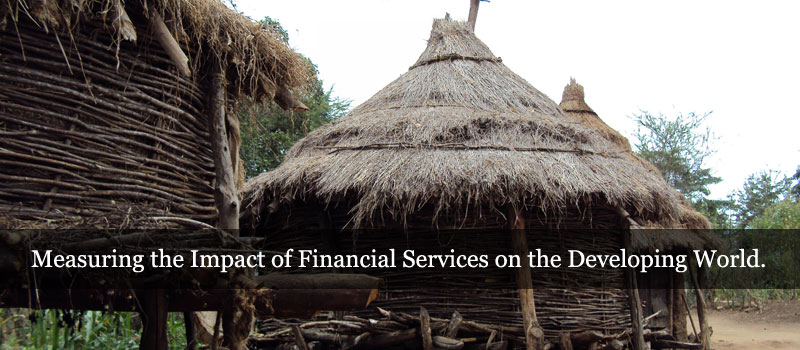Who Does Formal Finance Reach in Rural Malawi?
The Assessing the Impact of Innovation Grants in Financial Services project (the Financial Services Assessment project), jointly undertaken by the IRIS Center at the University of Maryland and Microfinance Opportunities, is assessing the impact of grants provided by the Bill and Melinda Gates Foundation (BMGF) to microfinance organizations for the design and development of innovations in providing financial services in developing countries. The research intends to assess the impact of new financial products, services, and delivery systems on outreach and client welfare. Through the use of baseline and end line quantitative surveys and qualitative studies, the research examines if and how the financial innovations supported by BMGF improve access to and use of financial services by the poor and impact client welfare. The research helps reveal the value proposition of financial innovations: the unique value added by the innovations to clients through the grantee institutions.
In 2007, the Bill and Melinda Gates Foundation provided funding to Opportunity International Bank in Malawi (OIBM) to purchase a mobile bank. The mobile bank is a roving bank fitted with the latest information technology mechanisms that provides rural Malawians increased access to financial services. The mobile bank was introduced in August, 2007 to serve three districts in central Malawi - Lilongwe, Mchinji and Dedza. As part of the Financial Services Assessment project, this study was designed to assess the welfare impacts on households due to the OIBM mobile bank.
In this paper, based on a study that collected quantitative data from 2,459 households in three rural districts of Central Malawi from February to April 2008, we examined the availability of financial services and if the poor are reached by the existing service providers. Specifically, we discussed the use of formal and informal savings and loan products among rural households to understand the breadth and depth of outreach by financial service providers. We examined the likely characteristics of users of formal finance. The study results are intended to inform OIBM of the potential clientele for their services. We summarize the major findings of the study and draw implications for expanding OIBM’s outreach in Central Malawi.




